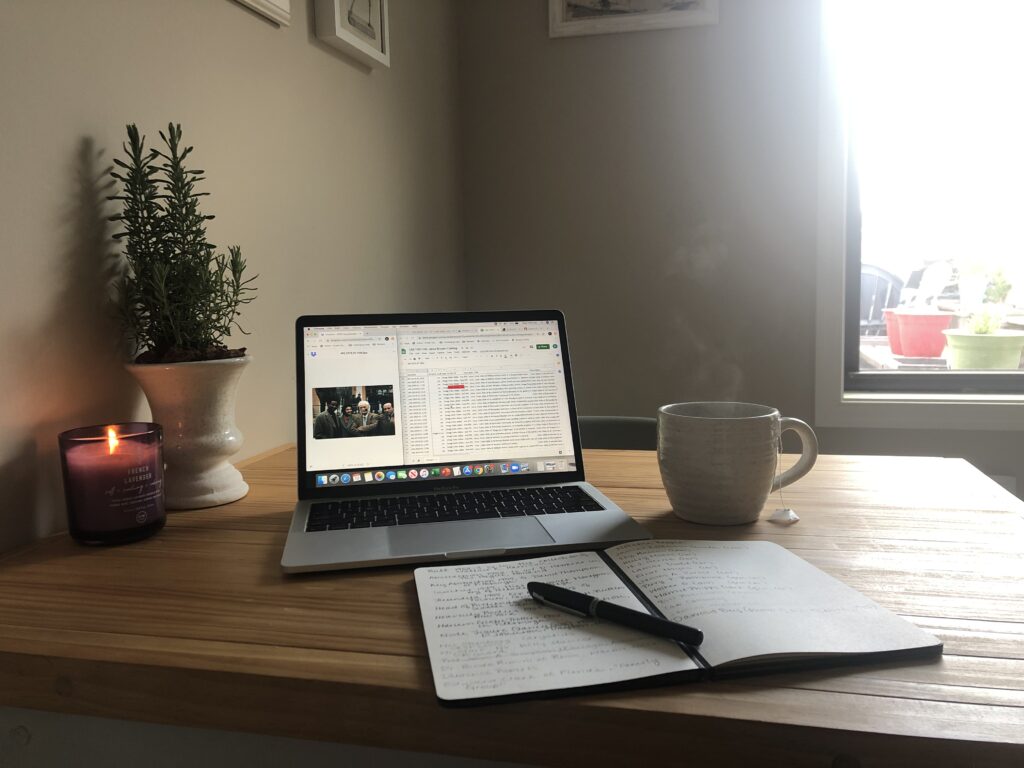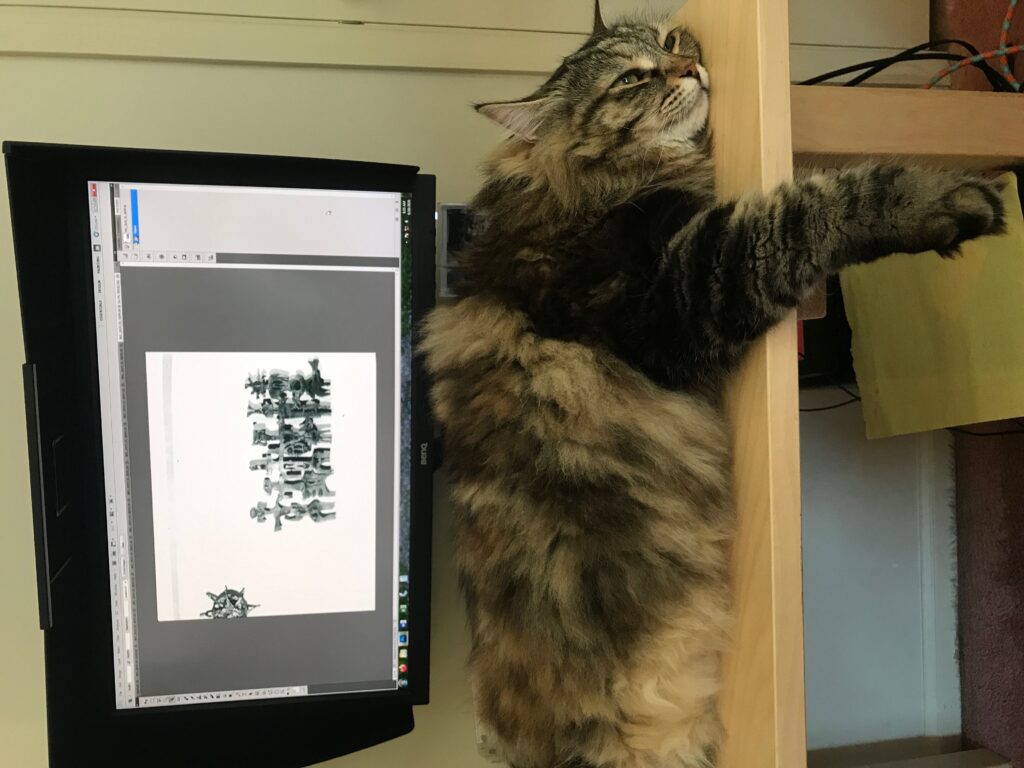Contributed by Kelin Baldridge, Project Archivist for the John Rhoden papers
Now that the John Rhoden papers team is back in the swing of things, I thought we should share a little bit about work from home life as an archivist during a global pandemic.
It is fair to wonder what on earth an archivist, especially a project archivist working with a physical collection, is able to do from home. We have not had access to any of the items in the collection for the past five months (mid-March to mid-August), so it would seem that the project would come to a standstill. Fortunately, due to the nature of the Rhoden project, that is far from the case.
The NEH grant-funded John Rhoden project requires us to process the John Rhoden papers, digitize a minimum of 5,000 items from the John Rhoden papers, and make both the original physical and newly created digital collections available for use. Before the pandemic changed life as we know it, we were able to process the collection and digitize the required 5,000 items.
Ever optimistic, in early March I was convinced that the virus would blow over fairly quickly. Hoang, the Project Director, had a better sense of the gravity of the situation and, per his recommendation, we transferred all of our documents, including the catalogs, inventory, and finding aid drafts, to Google Docs. Hoang converted all of our preservation-quality TIFFs to JPEGs and saved them to the archives’ dropbox account. This preparation, along with reaching the digitization goal, made it possible to continue the project when we were able to return to work remotely in July as we have digital access to all of the collection items and working documents.
What we have been able to do from home given the preparation mentioned above is: 1) finish cataloging all 5,000 digitized items, 2) begin a thorough line-by-line review of the catalog/metadata, 3) begin post-processing on the 5,000 digitized items, 4) continue working on the finding aid, and 5) continue to write blog posts, 6) brainstorm ideas for presenting the digital collection online.
I have spent most of my time completing the catalog and reviewing the catalog with a fine toothed comb. Jahna, equipped with the workstation from PAFA, has been handling all of the post-processing for the TIFFs.

Now that we have updated you on our progress, Jahna and I wanted to give a glimpse into our work from home setups to hopefully give a better sense of how the Rhoden project is now being carried out.
I am elated at the ability to drink coffee and tea while working! Working in an environment with candles and windows also feels incredibly luxurious. The downside is the fact that I live in an apartment with one small table and two remotely working adults. The peaceful setup seen above is only half the story – the rest of the time I am standing at the kitchen counter or sitting on the floor!

Jahna’s work from home setup consists of the PAFA desktop setup and a new colleague, Soba. Soba’s work ethic is lacking, but she is delightful company!
Archivists have always had to adapt and be flexible. The ability to work with what we have is a thread that ties us together. Working through a global pandemic is the ultimate test of this ability and I feel very blessed to join the leagues of archivists who are making it work in this unprecedented time.
This project, Rediscovering John W. Rhoden: Processing, Cataloging, Rehousing, and Digitizing the John W. Rhoden papers, is funded in part by the National Endowment for the Humanities, a federal agency.
ABOUT THE NATIONAL ENDOWMENT FOR THE HUMANITIES
Created in 1965 as an independent federal agency, the National Endowment for the Humanities supports research and learning in history, literature, philosophy, and other areas of the humanities by funding selected, peer-reviewed proposals from around the nation. Additional information about the National Endowment for the Humanities and its grant programs is available at: www.neh.gov.